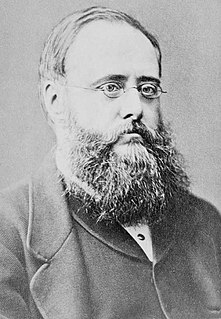A Quote by Albert Einstein
There are times when one feels liberated from one’s limits and human imperfections. At such moments, we see ourselves there, in a little corner of our little planet, our eyes fixed in wonder on the cold and yet deep beauty of that which is eternal, that which is elusive. Life and death are fused together and there is no evolution, nor destination, there is only BEING.
Related Quotes
There are moments when one feels free from one's own identification with human limitations and inadequacies. At such moments one imagines that one stands on some spot of a small planet, gazing in amazement at the cold yet profoundly moving beauty of the eternal, the unfathomable; life and death flow into one, and there is neither evolution nor destiny; only Being.
So far as we know, Earth is the only planet which supports life, and it is the only planet on which we can survive. Our bodies and our minds are fashioned by it. Our hearts resonate with it. There will be little joy for the human spirit if we destroy the natural fabric of Earth with nothing left to do but go shopping. When we imagine the world a century from now, when we look our great grandchildren in the eye and see them smiling back at us because they know we cared for them, we smile too!
Open your eyes and look for some man, or some work for the sake of men, which needs a little time, a little friendship, a little sympathy, a little sociability, a little human toil....It is needed in every nook and corner. Therefore search and see if there is not some place where you may invest your humanity.
We started off with physical evolution and got our form. Then we somehow developed language, which meant cultural evolution could race so we could change our behavior really quickly instead of over hundreds and hundreds of years. And then comes moral evolution, which means we're not frightfully far along with people. And maybe we end up with a spiritual evolution, which is this connectedness with the rest of the life forms on the planet.
Spirituality is an inner fire, a mystical sustenance that feeds our souls. The mystical journey drives us into ourselves, to a sacred flame at our center. The purpose of the religious experience is to develop the eyes by which we see this inner flame, and our capacity to live its mystery. In its presence, we are warmed and ignited. When too far from the blaze, we are cold and spiritually lifeless. We are less than human without that heat. Our connection to God is life itself.
The castle-building habit, the day-dreaming habit - how it grows! what a luxury it becomes; how we fly to its enchantments at every idle moment, how we revel in them, steep our souls in them, intoxicate ourselves with their beguiling fantasies - oh, yes, and how soon and how easily our dream-life and our material life become so intermingled and so fused together that we can't quite tell which is which, anymore.
The woman who first gives life, light, and form to our shadowy conceptions of beauty, fills a void in our spiritual nature that has remained unknown to us till she appeared. Sympathies that lie too deep for words, too deep almost for thoughts, are touched, at such times, by other charms than those which the senses feel and which the resources of expression can realise. The mystery which underlies the beauty of women is never raised above the reach of all expression until it has claimed kindred with the deeper mystery in our own souls.
Jesus came among us to show and teach the life for which we were made. He came very gently, opened access to the governance of God with him, and set afoot a conspiracy of freedom in truth among human beings. Having overcome death he remains among us. By relying on his word and presence we are enabled to reintegrate the little realm that makes up our life in the infinite rule of God. And that is the eternal kind of life. Caught up in his active rule, our deeds become an element in God’s eternal history. They are what God and we do together, making us part of his life and him a part of ours.
We've begun at last to wonder about our origins, star stuff contemplating the stars, organized collections of ten billion billion billion atoms contemplating the evolution of matter, tracing that long path by which it arrived at consciousness here on the planet Earth and perhaps throughout the cosmos. Our obligation to survive and flourish is owed not just to ourselves but also to that cosmos, ancient and vast, from which we spring.




































